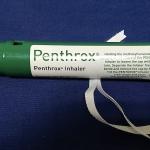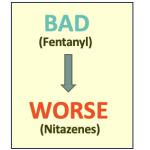Dr. Jeffrey Singer
For more than a decade, patients who've needed certain controlled medications have suffered from ill-advised, untenable policies the U.S. government has instituted, allegedly to mitigate the ever-surging numbers of drug overdose deaths.
I wrote here in 2020 and here&n
The Modernizing Opioid Treatment Access Act: Good Step in the Right Direction. It Should Go Further.
The government’s approach toward treating people with substance use disorder is degrading and dehumanizing. It stigmatizes people who are suffering from a compulsive behavioral disorder.
Sometimes it feels as if it’s March 2020 again.
The Centers for Disease Control and Prevention recently reported a devastating 108,000 overdose deaths in 2021.
Why start an article about a serious debate on a serious topic – whether overprescribing opioids caused today's overdose crisis – with a joke title?
Today the Drug Enforcement Administration released a Public Safety Alert warning the public about “the alarming increase in the l
“There are almost no chronic conditions I can think of where you look at medical maintenance and say, ‘When are you going to get off it?’ We don’t ask diabetic patients when they’re going to get off their insulin.
The Federalist Society recently organized a panel discussion on how to end the opioid crisis. One of the four participants was Dr. Jeffrey Singer of the Cato Institute, who is also a member of the ACSH's Board of Scientific Advisors:












